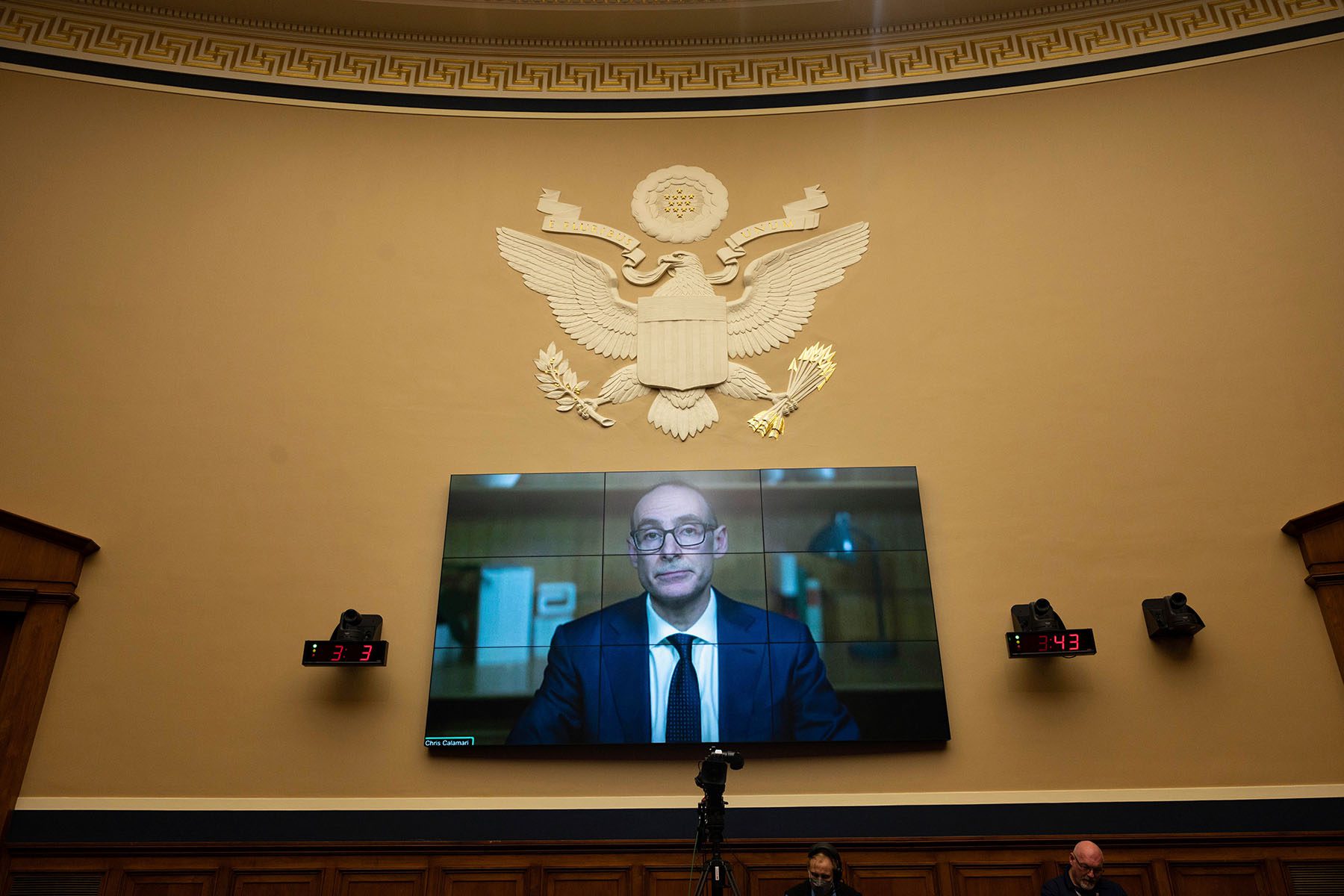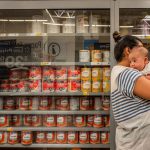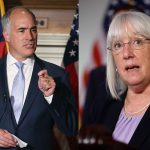Leaders representing the country’s three largest baby formula companies addressed lawmakers on Wednesday and apologized for not responding better to a national shortage that left families scrambling to feed their infants.
Abbott, Reckitt and Gerber Products Company executives testified virtually before the Committee on Energy and Commerce Staff to address what is being done to help American families. Collectively, these companies operate nine domestic facilities and produce about 95 percent of all infant formula sold in the United States.
“We know we let you down, and we are going to do everything we can to re-earn your trust,” Christopher Calamari, senior vice president of Abbott, said in his opening testimony.
The crisis, which was first widely felt in January, stemmed from pandemic-related supply chain challenges and was quickly compounded when Abbott, the country’s largest manufacturer, had a voluntary recall after an FDA inspection revealed unsanitary conditions and subsequently shut down its largest facility, which is in Michigan.
In the past few months, Calamari said Abbott has taken several actions to address the shortage: The company has flown in millions of formula powder from their Food and Drug Administration-registered facility in Ireland, with nearly 50 flights continuing to arrive at a dozen U.S. airports each week; the company’s other facilities in Ohio, Arizona and Virginia have been operating around the clock; and the company has been working with federal agencies to ensure low-income families using federal assistance can still access formula for free.
The company expects to reopen its Michigan plant after it meets agreed-upon FDA requirements and hopes to get product back on shelves six to eight weeks after that. Calamari added Abbott would produce more formula in June than it had in January.
“On behalf of everyone at Abbott, I want to express our extraordinary disappointment about this shortage,” Calamari said. “We are deeply, deeply sorry, and we are committed to ensuring that this never happens again. Safety comes first, and the recall and shutdown were necessary steps to ensure that our formula supply was safe.”
Rep. Frank Pallone, a Democrat representing New Jersey and chairman of the committee, asked the manufacturing executives if they could do more to speed up the supply.
“I wouldn’t be very happy right now if I was looking for baby formula, because all I heard Mr. Calamari say was ‘We’re going to get the plant up by June 1, then within six to eight weeks, we’ll be able to supply more,’” Pallone said. “But we need to get this stuff out now.”
The company’s largest facility accounted for about 20 percent of all formula in the country before it was shut down on February 17 amid reports that two infants had died from bacterial infections after consuming products from there.
The result was devastating for American families: By the first week in May, retailers across the country reported that more than 40 percent of all formulas were out of stock. Desperate parents turned to social media and other networks to get by. And because Abbott is the exclusive supplier for more than half of the federal nutrition assistance agencies nationwide, low-income parents and children and those living in rural areas were hit hardest.
Last week, President Joe Biden invoked the Defense Production Act, which required suppliers to prioritize formula manufacturers over other customers, and launched Operation Fly Formula, which directed the use of military aircraft to get formula from overseas. The House passed a $28 million emergency spending bill to help increase supply. The FDA also announced regulatory flexibility to help speed up the approval of foreign imports. For instance, Gerber is working with the FDA to approve the importation of formula from one of their facilities in Germany and Reckitt is doing the same for facilities in Mexico and Singapore.
Several FDA officials also testified on Wednesday.
Robert Califf, who was appointed FDA commissioner in February, admitted that the agency was “too slow” in responding but defended the agency’s decision to encourage the Abbott facility to issue a recall given the “shocking” inspection results. When questioned about the FDA’s response, Califf said the agency did the best it could given its lack of funding, staffing and technological systems.
When the Michigan plant was shut down, Califf said the FDA asked retailers to place limits on the amount of formula individuals could purchase, asked other manufacturers to increase production and alerted relevant agencies about supply chain risk. He argued that the formula shortage was not driven by a drop in production but by a sharp rise in purchases from panicked parents. Regardless of how it happened, he agreed the situation was dire.
“It is a crisis we’re fully aware of,” Califf said. “Families should not be searching for formula, but they have to do it now until we fill in with all of these measures. Other manufacturers have stepped up, we’re importing and we just have to keep filling in until we get to the point that production is up. Several weeks out, we’ll have a surplus of formula, but until then we have to fill in.”







